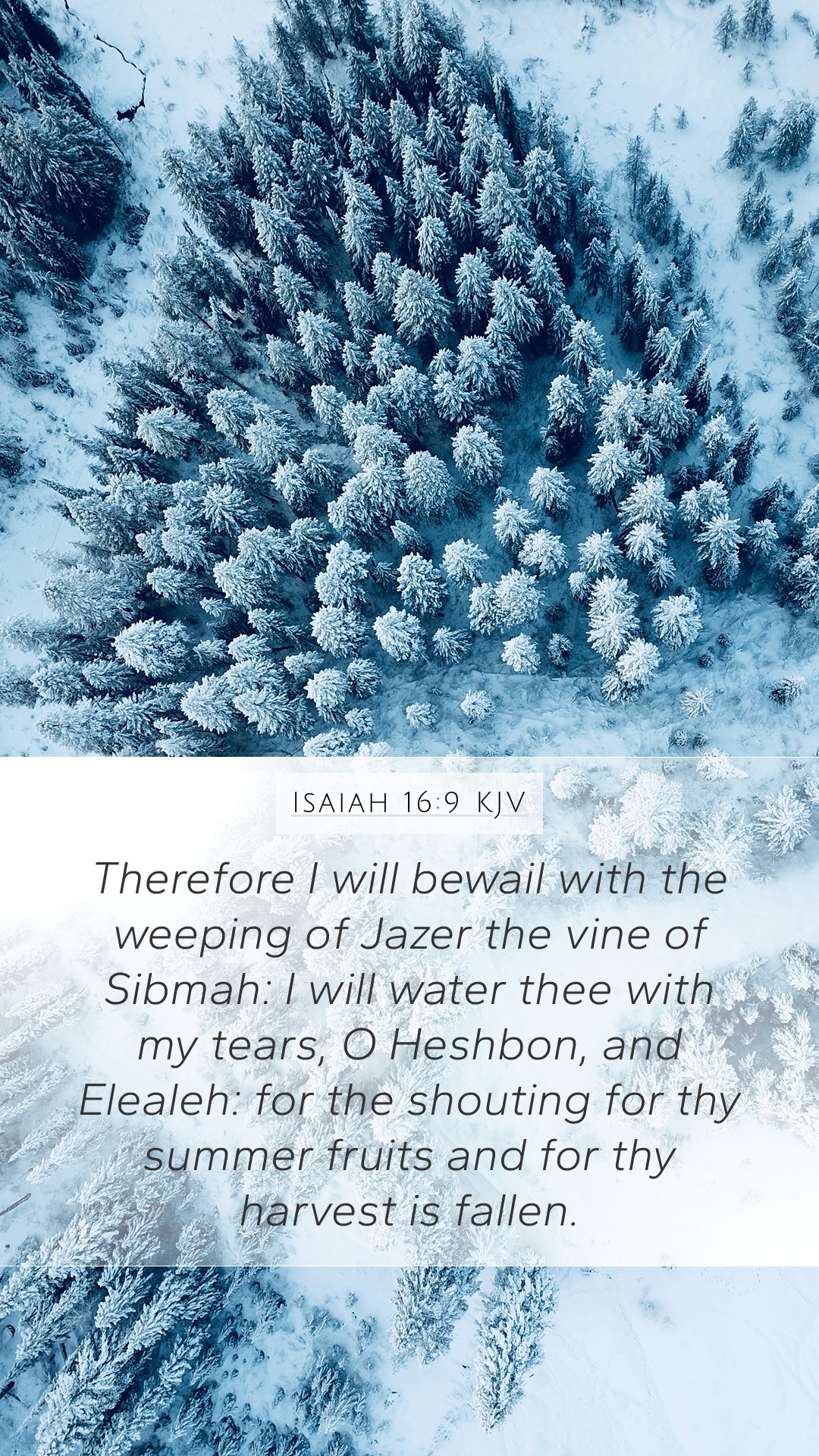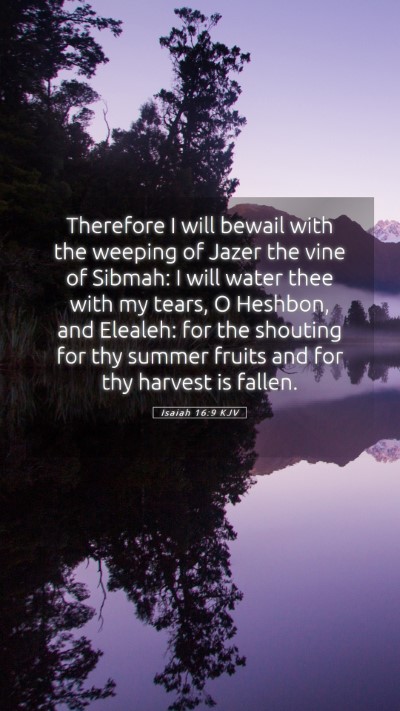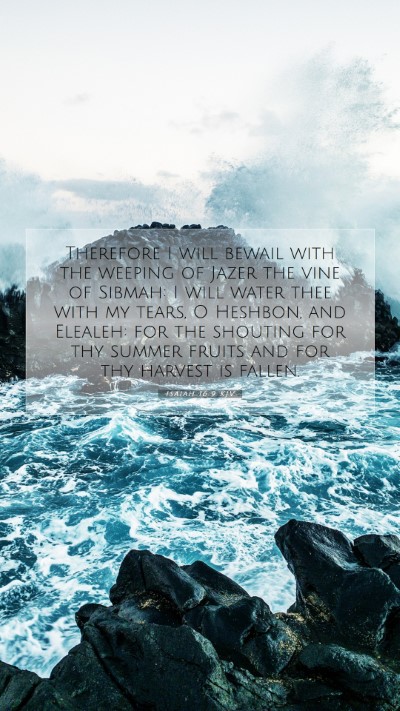Understanding Isaiah 16:9 - Bible Verse Commentary
Isaiah 16:9 states: "Therefore I will weep with the weeping of Jazer for the vine of Sibmah: I will water thee with my tears, O Heshbon, and Elealeh: for the shouting for thy summer fruits and for thy harvest is fallen." This verse captures profound sorrow, illustrating the emotional response of the prophet Isaiah to the devastation of Moab. Below, we provide a detailed Bible verse interpretation utilizing insights from public domain commentaries, helping illuminate its meaning within the broader context of Scripture.
Summary of Isaiah 16:9
Isaiah expresses deep lamentation for the destruction of the Moabite territory, specifically mentioning regions like Jazer, Heshbon, and Elealeh. The imagery of weeping indicates a heartfelt compassion for the suffering of Moab due to foreign oppression. The usage of "vine" signifies prosperity and blessings which are now lost.
Insights from Public Domain Commentaries
-
Matthew Henry's Commentary:
Henry emphasizes the dramatic change in fortune for Moab, noting the significance of the vine as a symbol of abundance. He draws attention to the emotional weight of Isaiah's lament, associating it with the spiritual state of the people whom God loved despite their transgressions.
-
Albert Barnes' Notes:
Barnes discusses the contextual backdrop of this verse within Isaiah's prophetic ministry. He points out that the weeping signifies not just personal sorrow but reflects the consequences of disobedience and the judgment that follows. Barnes elaborates on the geography mentioned, explaining its importance in the agricultural economy of Moab, which has now been devastated.
-
Adam Clarke's Commentary:
Clarke interprets the tears shared by Isaiah as a divine empathy toward a rebellious nation. He articulates the loss of joy that the summer fruits represent, indicating a time of celebration turned to mourning. Clarke connects this with a broader theme of God's righteous judgment entwined with compassion for His creation.
Thematic Analysis
This verse presents crucial themes relevant to Bible study insights. Here are some key aspects:
- The Power of Lament: Isaiah's emotional response underlines the significance of expressing sorrow for sin and misfortune, reminding us of the biblical calling to empathize with one another.
- Loss and Restoration: The metaphor of the vine indicates a dual perspective—both the loss of prosperity and the hope for future restoration through genuine repentance.
- God’s Sovereignty: It highlights that while divine judgment is painful, it serves a purpose in the Lord's overall plan for redemption and restoration.
Historical Context
To appreciate fully the ramifications of Isaiah 16:9, it is essential to understand its historical context. Moab, often at odds with Israel, faced destruction as foretold by the prophets. This specific lament by Isaiah reflects the societal and agricultural impacts of warfare on these ancient cultures.
Applying this Verse to Daily Life
The emotional and spiritual weight of Isaiah 16:9 encourages us to reflect upon the significance of lamentation in our lives. It invites believers to acknowledge their collective pain regarding societal issues while seeking empathetic responses:
- Community Support: Use this verse as a reminder of the importance of supporting those in need, much like Isaiah shows compassion here.
- Personal Reflection: Encourage individuals to assess areas of loss in their lives, understanding that God’s grace is often intertwined with sorrow.
- Spiritual Growth: Consider how times of mourning can lead to deeper insights into God's nature and His plan for healing.
Related Scriptures
This verse connects profoundly with several other Biblical texts:
- Jeremiah 48:31 - A lament for Moab and its destiny
- Lamentations 1:8 - Highlighting sorrow in the wake of destruction
- Isaiah 25:8 - God's compassion for those who mourn
Conclusion
In conclusion, Isaiah 16:9 serves as a powerful reminder of the deep emotional and spiritual truths embedded in the narrative of Scripture. Engaging with this verse through Bible verse commentary sheds light on its rich meanings and invites us to explore the themes of lamentation, loss, and the hope of future restoration. This understanding is invaluable for anyone looking for Bible verse explanations and guidance in their spiritual walk.


